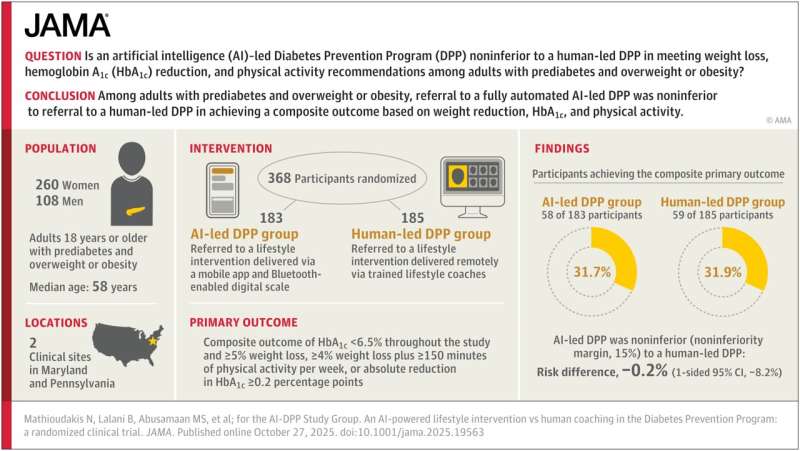Published in JAMA Oct. 27, the study is believed to be the first phase III randomized controlled clinical trial to demonstrate that an AI-powered diabetes prevention program (DPP) app helps patients meet diabetes risk-reduction benchmarks established by the Centers for Disease Control and Prevention (CDC) at rates comparable to those in human-led programs.
An estimated 97.6 million adults in the United States have prediabetes, a condition in which blood sugar levels are above normal but below the threshold for type 2 diabetes, putting them at increased risk of developing type 2 diabetes within the next five years. Previous research has shown that adults with prediabetes who complete a human-led DPP, which help participants make lifestyle changes to diet and exercise, are 58% less likely to develop type 2 diabetes, as shown in the CDC’s original Diabetes Prevention Program (DPP) clinical study. However, access barriers, such as scheduling conflicts and availability, have limited the reach of these programs.

